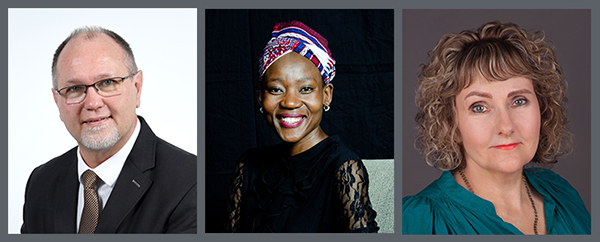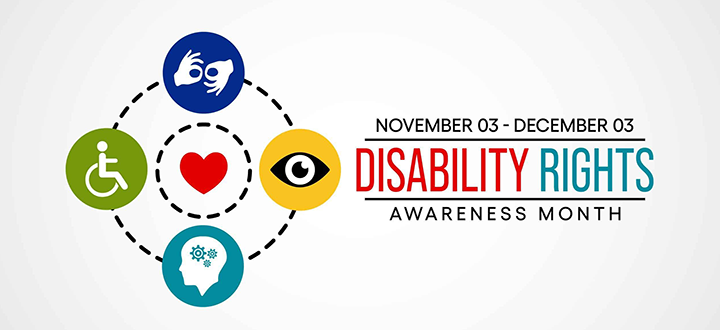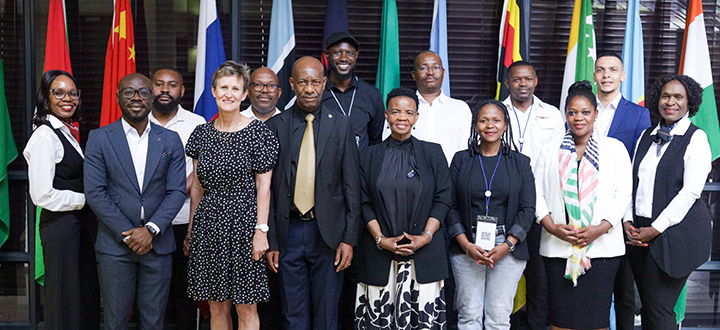Research
Unisa shows that developing countries are equal partners in research management and administration capacity development
In international capacity-building settings, it is not uncommon for the "teachers" to come from developed countries and the "learners" from developing countries. This outdated model is slowly shifting to a more equitable one, at least in the field of research management and administration (RMA).

Prof Les Labuschagne, Prof Puleng Segalo and Dr Retha Visagie
This was the experience of two Unisa representatives, Prof Les Labuschagne, Executive Director: Research, Innovation and Commercialisation, and Dr Retha Visagie, Manager of Unisa’s Research Integrity Office, who were invited to participate in research management and administration capacity development at the second Virtual International Convention for Research Administrators (VICRA). VICRA II was hosted by the Society of Research Administrators International (SRAI), an international professional body for RMA.
"Facilitators from so-called developing countries – including India, Pakistan and South Africa – were well represented, making up half of the course leaders," Labuschagne revealed. This ensured that the course content was relevant to the real-life experience of the 60 participants, most of them from countries in Africa, South America, the Middle East and South-East Asia.
Further amplifying the voice of developing countries, Prof Puleng Segalo, Chief Albert Luthuli Research Chair at Unisa, was one of two keynote speakers at VICRA, and addressed the convention on the topic Transformative research collaborations: Moving beyond "equitable partnerships" between the "Global North" and the "Global South".
VICRA course is a key step in professional development
The three-day capacity development initiative is considered a key development step for entry-level and mid-career RMAs in developing countries, as it results in SRAI certification. Labuschagne explained: "In most cases, the participants would not have the resources to attend in-person capacity-building events hosted in developed countries, so this virtual initiative helps to level the playing field."
The VICRA initiative consists of two tracks: the Introduction to Research Administration and Management (IRAM) certificate for those with three years or fewer in research administration and the Practice of Research Administration and Management (PRAM), for participants with four or more years of experience.
Between them, the two Unisa presenters facilitated four modules, namely compliance and governance in research administration and management, research integrity and stewardship, the merit of research policies and processes, and facets of research collaboration. Labuschagne also facilitated a homework exercise for the PRAM track, and he and Visagie contributed to other topics, such as fostering a research culture and building high-performing teams.
Unisa was the only African institution invited to join the team of facilitators. Asked why the university had been approached, Labuschagne explained: "While a lot of South African universities are in the process of professionalising their RMA environment, we at Unisa already have substantial experience in the field, a wide international network and the ability to contribute on a global level."
He added that the VICRA initiative was an opportunity for Unisa to demonstrate its character as an African university in the service of humanity. "We gave back to a specific community – RMAs from developing countries, who would not otherwise have been able to gain exposure to this kind of capacity development."
* By Clairwyn Rapley, Directorate of Research Support
Publish date: 2024-04-29 00:00:00.0


 Wings of opportunity: Bringing drones into the classroom
Wings of opportunity: Bringing drones into the classroom
 Visionary youth champion to address Unisa’s Innovation Festival
Visionary youth champion to address Unisa’s Innovation Festival
 Finding the strength to persevere
Finding the strength to persevere
 Disability awareness at Unisa: Disability is not inability
Disability awareness at Unisa: Disability is not inability
 Unisa symposium shares knowledge on building SA's aviation economy
Unisa symposium shares knowledge on building SA's aviation economy